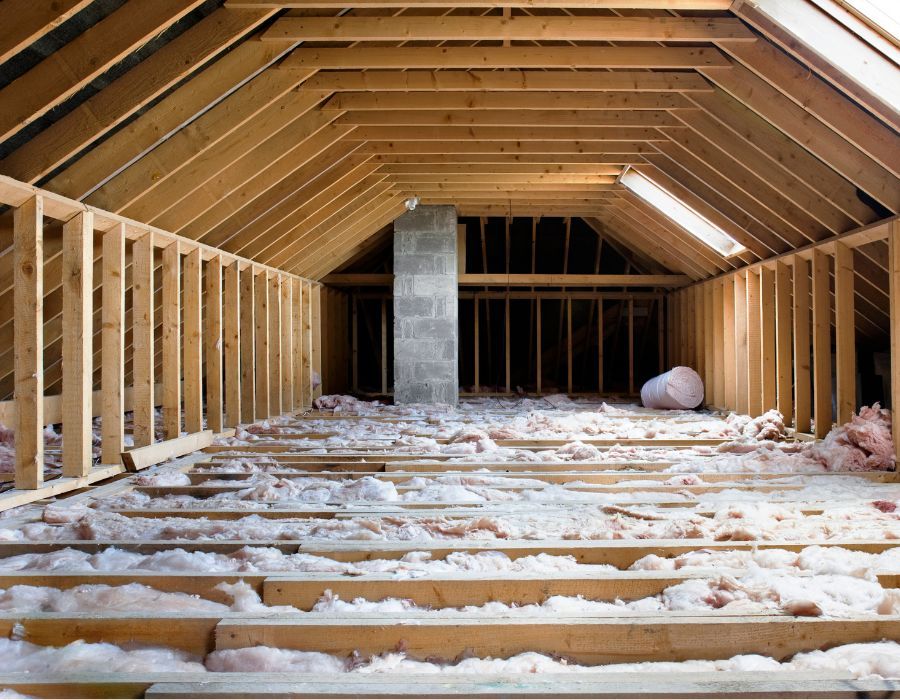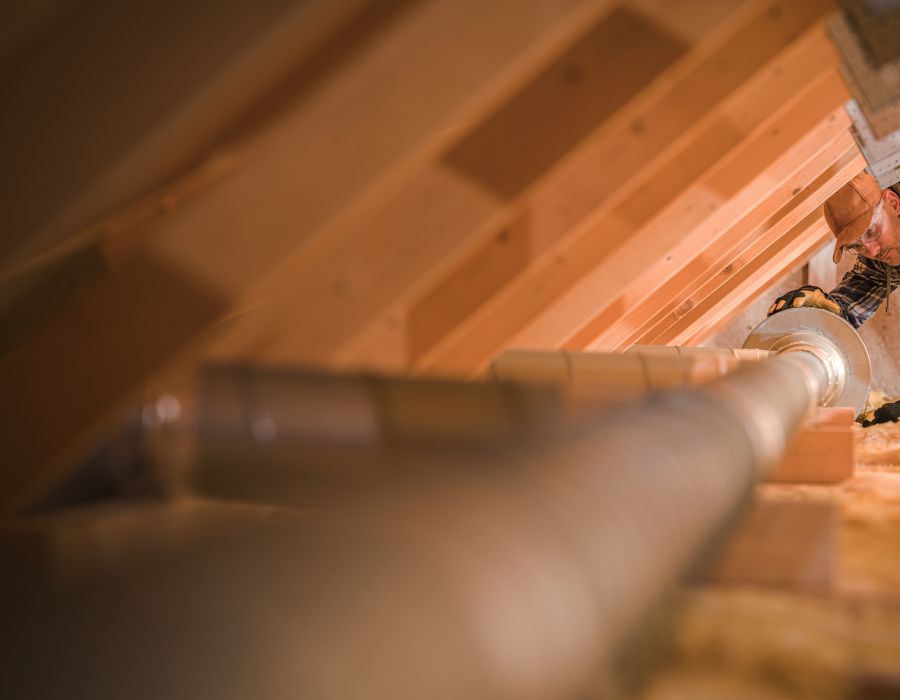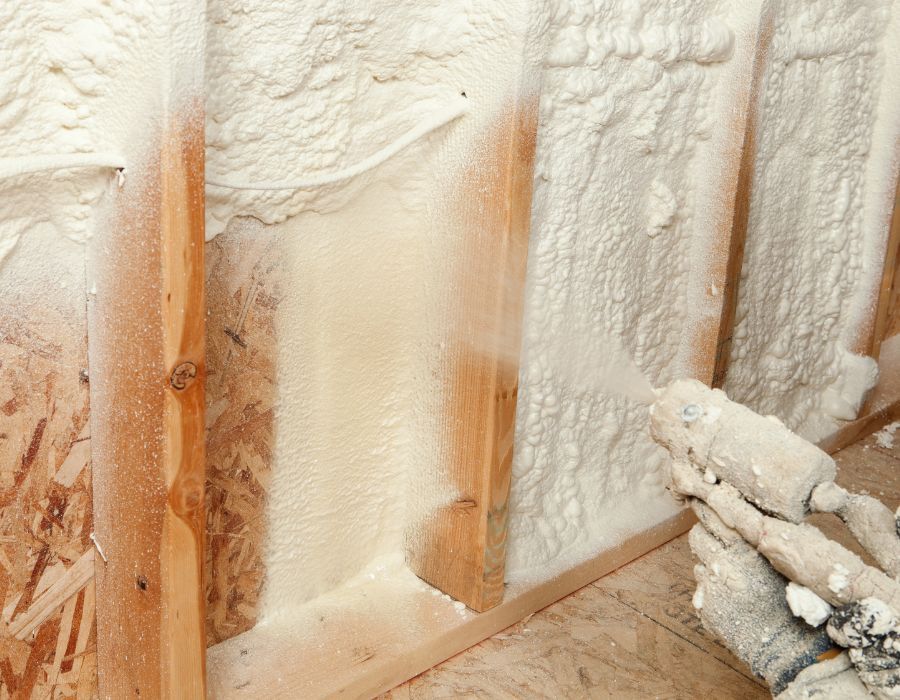
The Role of Insulation in Reducing Your Carbon Footprint
TL;DR: Proper insulation reduces energy consumption, lowers energy bills, and enhances home comfort by keeping temperatures consistent. It also helps reduce greenhouse gas emissions, contributing to a smaller carbon footprint. Opt for eco-friendly insulation options like recycled materials, natural fibers, and low VOC products. Investing in insulation benefits your home and the planet by promoting sustainability and energy efficiency.
As concerns about climate change and environmental sustainability grow, homeowners are increasingly looking for ways to reduce their carbon footprint. One of the most effective methods to achieve this is through proper insulation. Insulation not only improves the energy efficiency of a home but also contributes significantly to reducing greenhouse gas emissions. In this blog, we will explore how insulation reduces energy consumption, the benefits it offers for both your home and the planet, and how to choose eco-friendly insulation options.
Table of Contents
ToggleHow Insulation Reduces Energy Consumption
Insulation acts as a barrier to heat flow, which means it helps keep your home warm in the winter and cool in the summer. By reducing the amount of heat that escapes in the winter and the amount of heat that enters in the summer, insulation significantly lowers the need for heating and cooling. This reduction in energy demand directly translates to lower energy consumption.
When your home is properly insulated, your heating and cooling systems don’t have to work as hard to maintain a comfortable temperature. This efficiency reduces the amount of energy required, which in turn reduces the burning of fossil fuels used to generate electricity. As a result, your home’s carbon footprint is reduced, contributing to the overall reduction of greenhouse gas emissions.
Benefits of Proper Insulation for Your Home and the Planet
Proper insulation offers a myriad of benefits that extend beyond just energy savings. Here are some of the key advantages:
Lower Energy Bills
By reducing the amount of energy needed to heat and cool your home, insulation helps lower your energy bills. Over time, these savings can offset the initial cost of installing insulation, making it a cost-effective investment.
Enhanced Comfort
Insulation helps maintain a consistent indoor temperature, providing a more comfortable living environment. It reduces drafts and cold spots in the winter and keeps your home cooler in the summer.
Noise Reduction
Insulation also acts as a sound barrier, reducing the amount of noise that enters your home from outside. This can create a quieter, more peaceful living space.
Environmental Impact
By reducing energy consumption, insulation lowers greenhouse gas emissions. This contributes to the fight against climate change and helps protect the environment for future generations.
Increased Property Value
Homes with proper insulation are often more attractive to buyers because of the energy savings and comfort they offer. This can increase the resale value of your property.
How to Choose Eco-Friendly Insulation Options
When choosing insulation, it’s important to consider eco-friendly options that minimize environmental impact. Here are some tips on selecting sustainable insulation materials:
Recycled Materials
Opt for insulation made from recycled materials, such as cellulose insulation, which is made from recycled paper, or denim insulation, made from recycled cotton.
Natural Fibers
Consider insulation made from natural fibers like wool or cork. These materials are renewable and biodegradable, making them environmentally friendly choices.
Low VOCs
Select insulation products that have low levels of volatile organic compounds (VOCs). VOCs can off-gas harmful chemicals into your home, affecting indoor air quality.
Energy Star Certified
Look for insulation products that are Energy Star certified. This certification ensures that the product meets strict energy efficiency guidelines set by the U.S. Environmental Protection Agency.
Proper Installation
Ensure that the insulation is installed correctly to maximize its efficiency. Poor installation can reduce the effectiveness of the insulation and lead to energy loss.
Final Thoughts
Insulation plays a crucial role in reducing your carbon footprint by improving your home’s energy efficiency and lowering greenhouse gas emissions. By choosing eco-friendly insulation options, you can enhance the comfort of your home, save on energy bills, and contribute to a more sustainable future. Investing in proper insulation is not just a smart financial decision; it’s a step toward a greener, healthier planet.
FAQ
How does insulation help reduce energy consumption?
Insulation acts as a barrier to heat flow, keeping your home warm in the winter and cool in the summer. This reduces the need for heating and cooling systems to work as hard, lowering energy consumption and resulting in lower energy bills.
What are the benefits of using eco-friendly insulation materials?
Eco-friendly insulation materials, such as those made from recycled or natural fibers, reduce environmental impact. They are renewable, biodegradable, and often have lower levels of harmful chemicals, improving indoor air quality and contributing to sustainability.
How do I choose the right insulation for my home?
When choosing insulation, consider factors such as material, environmental impact, and energy efficiency. Look for insulation made from recycled or natural materials, check for low VOC levels, and opt for products with Energy Star certification to ensure high energy efficiency.
Can proper insulation increase my home’s property value?
Yes, homes with proper insulation are often more attractive to buyers due to the energy savings and enhanced comfort they provide. Properly insulated homes can have higher resale values, making insulation a worthwhile investment.
Other Blogs You May Be Interested In
Categories
- Spray Foam Insulation
- Attic Ventilation
- Attic Insulation
- Radiant Barrier
- Blown-In Insulation
- Solar Fan









Leave a Reply